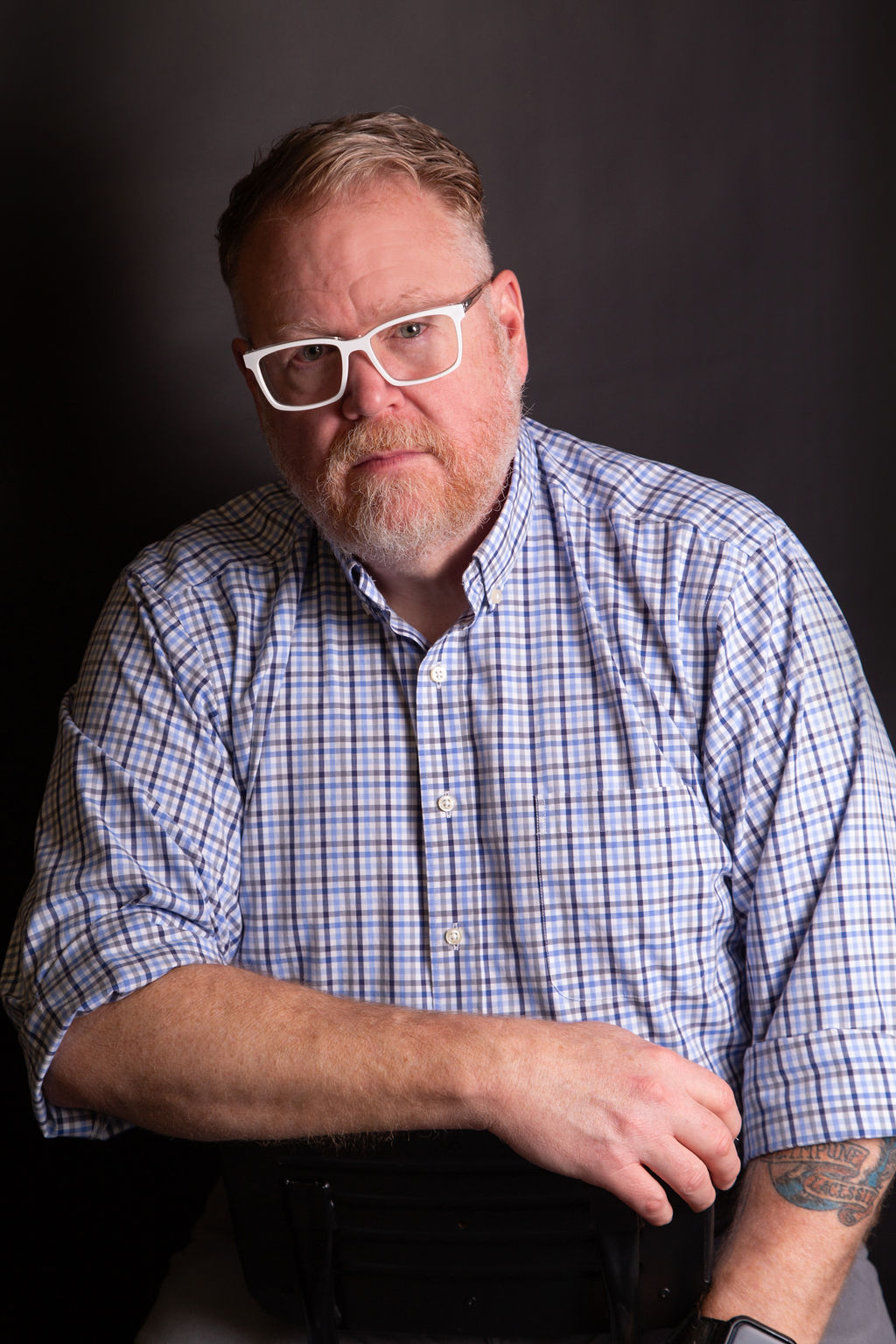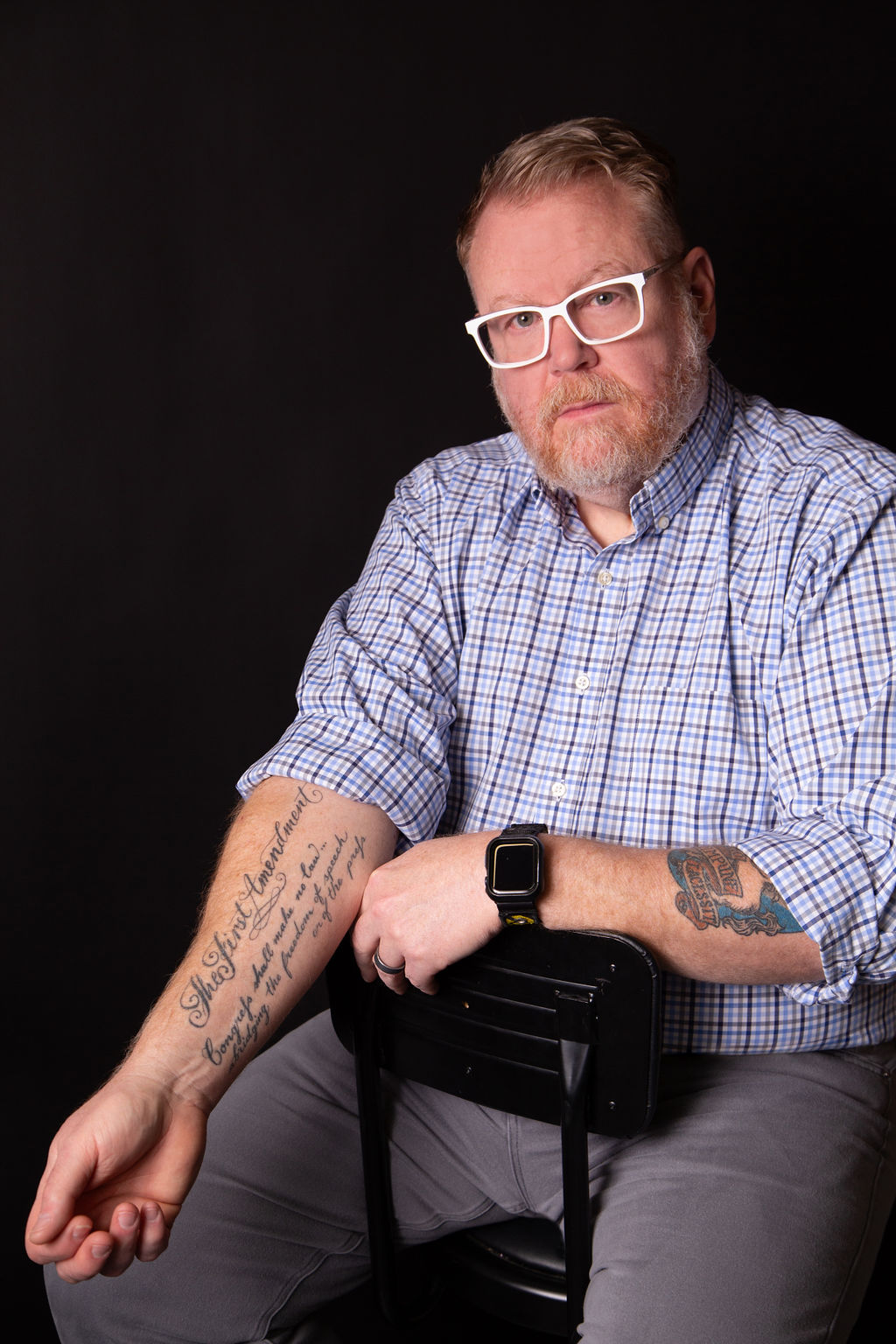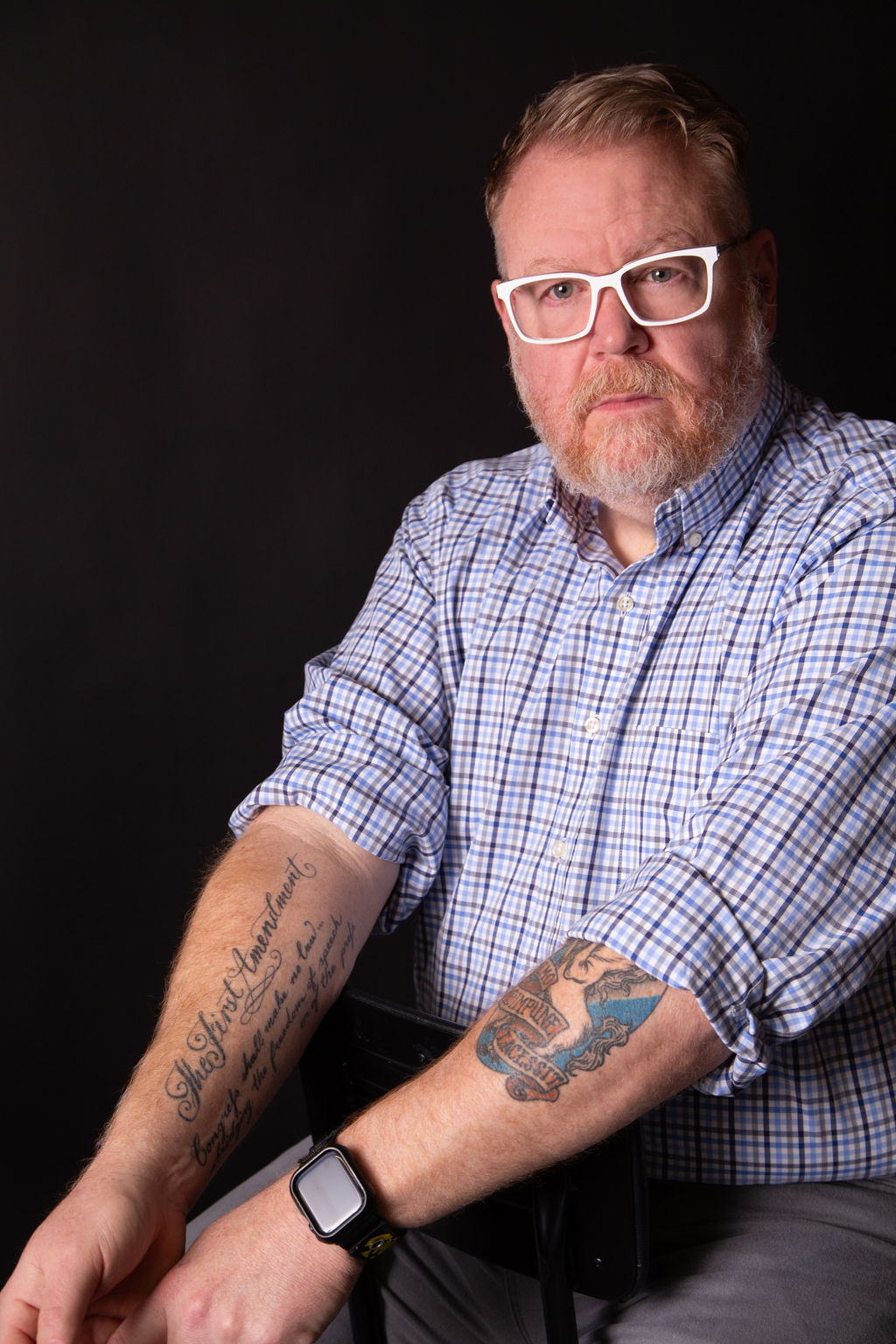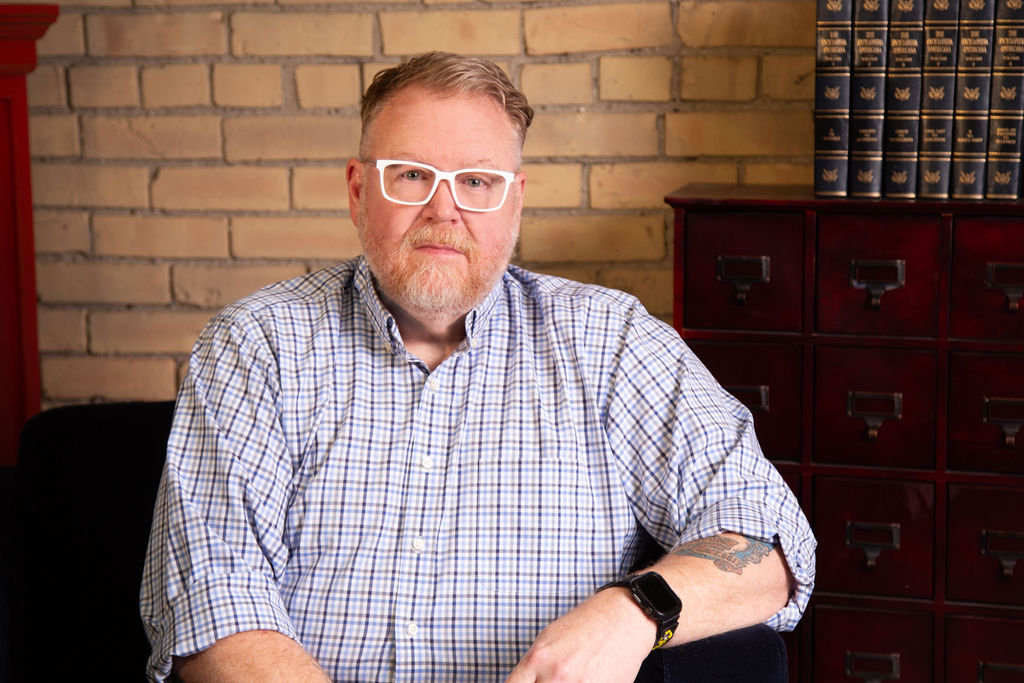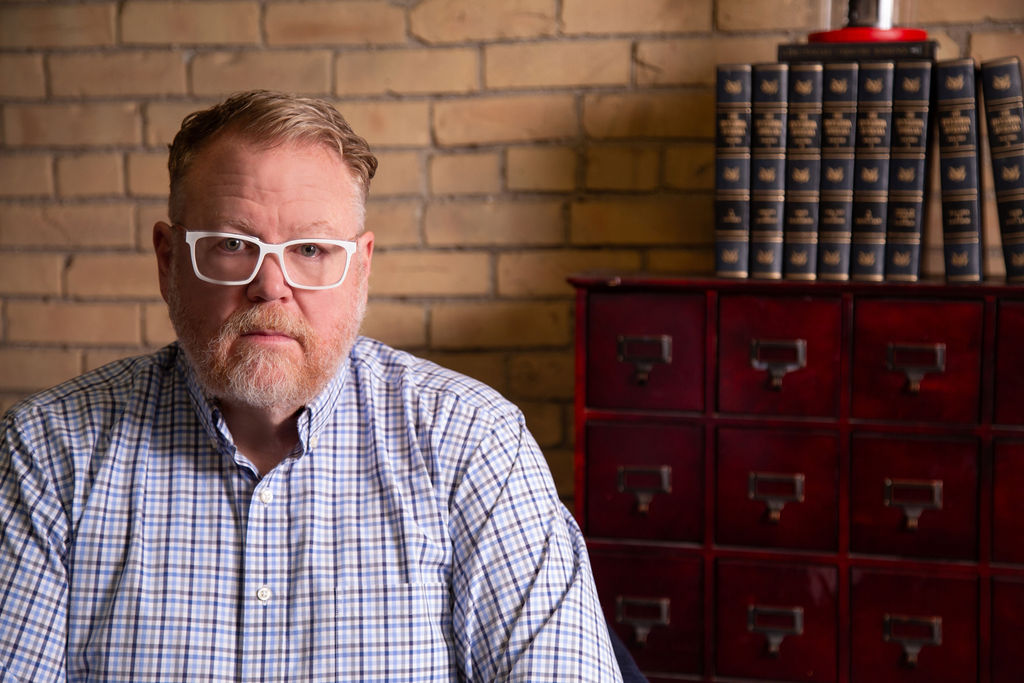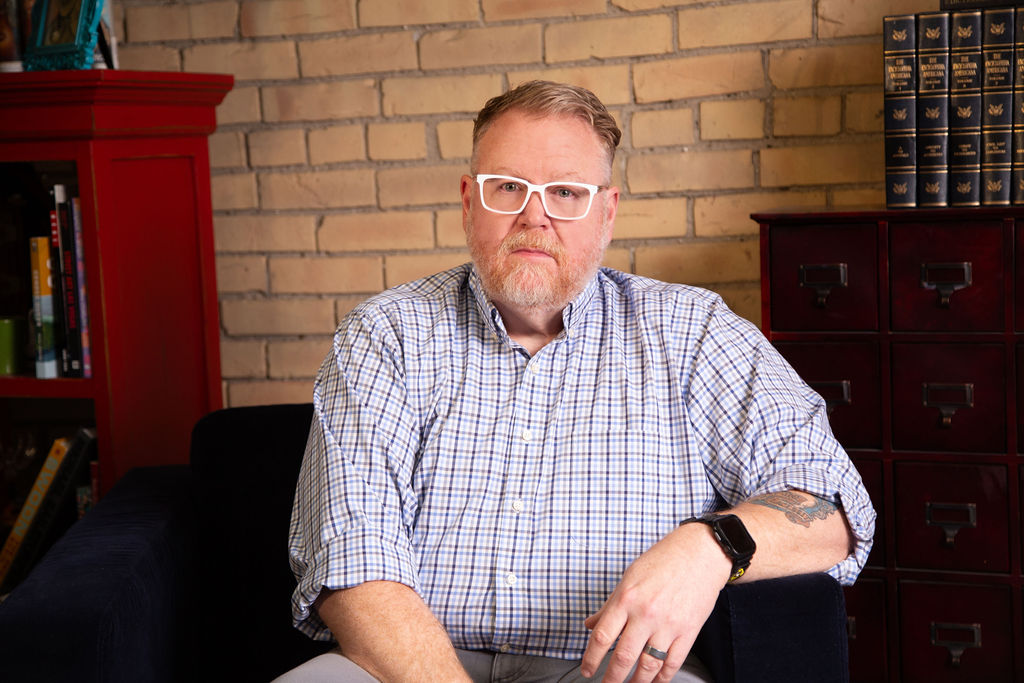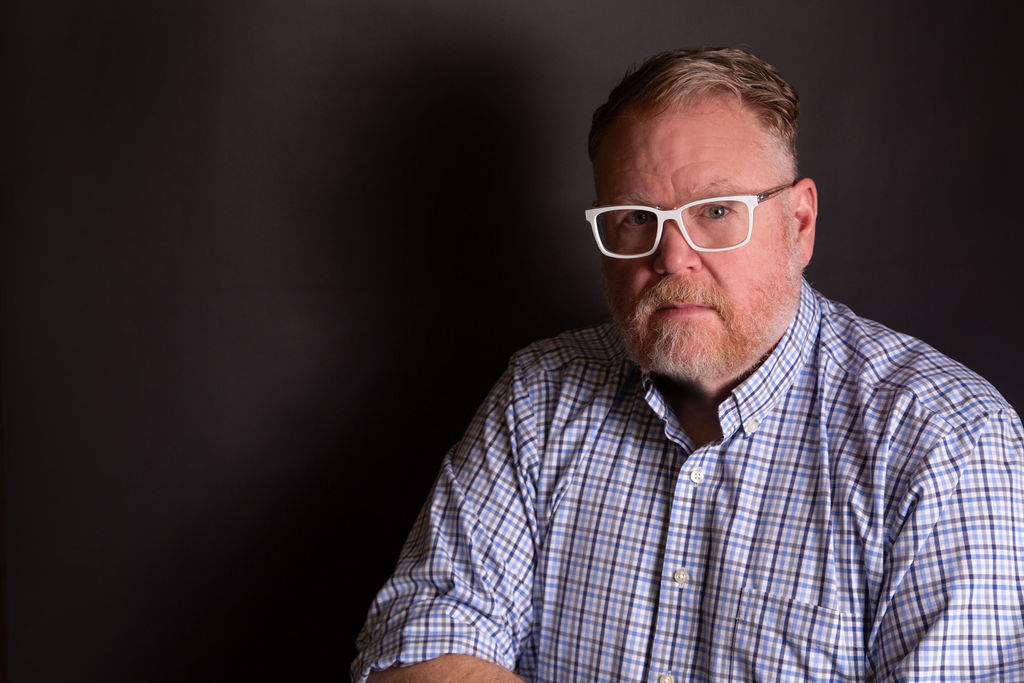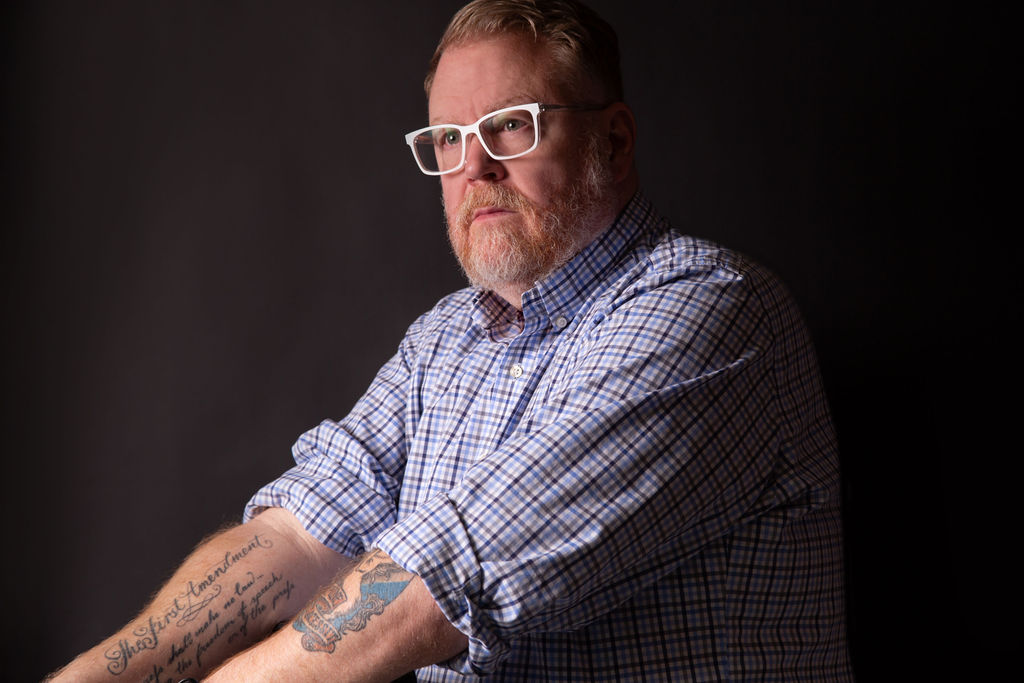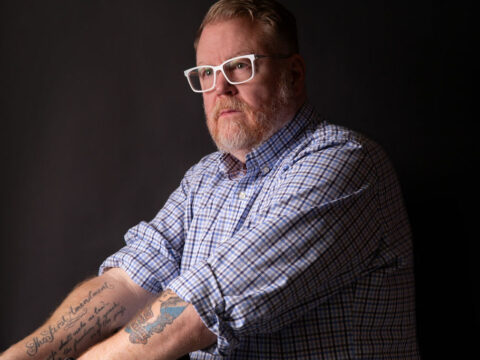For photos of our client, please scroll to the bottom of this page.
Salt Lake City Journalist Fights for Freedom of the Press
Bryan Schott never imagined his 25-year career covering Utah politics would lead to being denied access to the very institution he’s reported on for decades.
Yet, Schott received no press credential to cover the beginning of the 2025 Utah Legislative Session. The denial came after being labeled “not a journalist” by those in power—a curious designation for a veteran, award-winning reporter who has spent years holding policymakers accountable.
That’s the battle unfolding in Salt Lake City—a battle to determine whether the Constitution’s promise of a free press will endure in the face of arbitrary government action targeting independent journalists.
Schott, a journalist who has covered Utah politics since 1999, finds himself in a fight for basic First Amendment rights. After leaving The Salt Lake Tribune in 2024, he founded Utah Political Watch (UPW), which quickly became an influential source of state political coverage. But his continued pursuit of hard-hitting journalism appears to have come at a cost.
The trouble came to light after Schott published a story in December 2024 about a complaint filed against Senate President Stuart Adams regarding campaign finance disclosures. The response was swift and hostile. Adams took to social media to criticize Schott’s reporting, dismissively labeling him a “former media member” and questioning his journalistic integrity and “pattern” of coverage.
“It’s really hard to think that this social media post, which accuses me of neglectful journalism and calls my publication a blog, isn’t somehow connected to their justification for not giving me a press credential because they do not give them to blogs and independent media,” Schott explained in a social media video at the time. “It’s just really hard not to make that connection.”
That same day, Senate Deputy Chief of Staff Aundrea Peterson sent Schott threatening text messages about the credential review process while dismissing him as “someone who claims to be a journalist.” When Schott asked what ethical standards she claimed he had not met, Peterson retorted, “You aren’t a journalist.”
The timing was suspicious. Just weeks after Schott had inquired about obtaining credentials for the 2025 session, the Utah Legislature changed its credentialing rules to exclude “blogs, independent media outlets or freelance media”—a stark departure from the previous policy, which allowed independent journalists to receive credentials under certain circumstances.
When Schott submitted his credential application in December, the process took an unusual turn. Despite passing his criminal background check, he was told to wait while officials “looked it over.” After sitting outside their office for more than 90 minutes, he received an email denying his application. “That is the most cowardly move I have ever encountered up here at the Capitol,” Schott recounted at the time. “But it tracks with everything I’ve been anticipating.”
Despite having received press credentials every year since they were implemented, officials ultimately denied Schott’s application for the 2025 session. Their alleged rationale? UPW didn’t qualify as “an established, reputable news organization.” That reasoning seems absurd, given that Schott’s work has earned him the National Press Foundation’s Election Journalism Fellowship and recognition as Utah’s Best Newspaper Reporter.
The impact of the refusal to grant a credential is severe and ongoing. Schott cannot attend daily leadership meetings, participate in media availabilities with legislative leaders, or access areas of the Capitol reserved for press coverage. He’s already been prevented from covering key events, including the House GOP’s legislative priorities announcement and the governor’s monthly press conference.
“Without that press credential,” Schott explains, “there are a number of things that I simply cannot attend that will severely impact my ability to report on what lawmakers are doing. I won’t be able to attend press conferences, so I’ll have to hope that they’re being livestreamed somewhere. Even then, I won’t be able to ask questions.”
The credentials denial doesn’t just affect Schott—it impacts the thousands of Utahns who rely on his reporting. UPW has approximately 1,000 newsletter subscribers, and its stories regularly receive thousands of views. UPW’s weekly podcast receives hundreds of downloads per episode, and Schott has over 25,000 followers across all social media platforms, which he uses to provide updates on Utah politics.
On January 22, 2025, with the help of the Institute for Free Speech and local counsel Bobby Harrington of Kunzler Bean & Adamson, PC, this conflict compelled Schott and UPW to file a federal lawsuit against Utah legislative officials. The suit challenges the credential policy as unconstitutionally vague and discriminatory, arguing that the new rules fail to define key terms like “independent” and “reputable,” allowing officials to arbitrarily decide who qualifies as legitimate media.
“For over two decades, I’ve worked to hold policymakers accountable and to keep Utahns informed about their state government,” Scott noted in the release that accompanied the filing of the lawsuit. “Now, legislative officials are trying to shut me out—and shut me up—simply because I am once again an independent journalist, as I was until 2020. There is no legitimate reason to exclude me now.”
“This isn’t just about me,” Schott emphasizes. “It’s about protecting press freedom for all reporters who work outside traditional media organizations.”
Schott’s case highlights what happens when government officials use arbitrary credentialing rules to control who can report on their activities. When officials can decide which journalists are “legitimate” enough to cover their actions, the public suffers through lost access to critical reporting and information.
Schott’s fight is about much more than one reporter’s access. It’s about preserving the fundamental First Amendment principle of press freedom that has been a cornerstone of American democracy for over two centuries.
Client Photos
The Institute for Free Speech grants permission to publish any of these photos with the credit, “Cat Palmer / Institute for Free Speech.”
Plaintiff Bryan Schott
